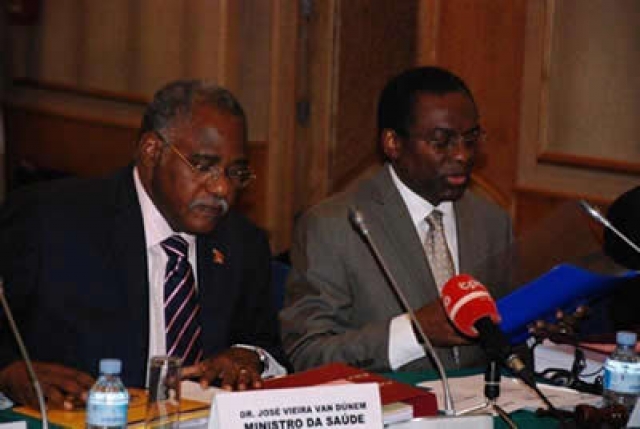Second Session of WHO AFRO Programme Subcommittee concludes in Luanda, Angola
 The second session of the WHO AFRO Programme Subcommittee has concluded today in Luanda, Angola. The two-day meeting was attended by Dr José Van Dúnem, the Angolan minister of Health, Dr. Patrick Chikusu, the Deputy Minister of Health of Zambia, public health experts from the sixteen member countries of the Sub-Committee as well as members of the Executive Board from the WHO African Region.
The second session of the WHO AFRO Programme Subcommittee has concluded today in Luanda, Angola. The two-day meeting was attended by Dr José Van Dúnem, the Angolan minister of Health, Dr. Patrick Chikusu, the Deputy Minister of Health of Zambia, public health experts from the sixteen member countries of the Sub-Committee as well as members of the Executive Board from the WHO African Region.
The Committee, which is a subsidiary body of the WHO Regional Committee, discussed WHO Reforms as reflected in the 12th General Programme of Work and the Programme Budget 2014-2015; the Expert report on research and development, for consideration by the forthcoming Regional Committee of WHO in the African Region.
Speaking at the opening, Dr Luis Gomes Sambo expressed optimism that the upcoming RC62 will be an opportunity for representatives of governments and international partners to decide on strategies to accelerate priority programs toward better health outcomes in Africa.
Referring to progress in socio-economic development in the African Region, he said: “Africa has recorded economic growth and stability and this is the opportunity for improvement in terms of investments and management for greater efficiency and better results in healthcare." He added that, despite progress in areas such as polio eradication, child health, malaria control and control of HIV / AIDS, reducing maternal mortality is one area where we still have much to do. The Regional Director commended efforts of the African Union, which, he added, "has played a leading role in the level of public health in Africa."
In his remarks, Dr Van Dunem, the Angolan minister of health, told participants that hosting the impending RC62 is a great honor for the Republic of Angola, particularly at a time when the country is engaged in extending coverage of primary health care to its citizens at the district level.
The 62nd session of the Regional Committee (RC62) is scheduled for 19-23 November 2012 in Luanda, Angola and is expected to attract over 300 participants including Ministers of Health and their delegations from the 46 Member States which constitute the African Region of WHO, as well as representatives of United Nations Agencies, Funds and Programmes and a number of bilateral, multilateral and Non-Governmental Organizations.


